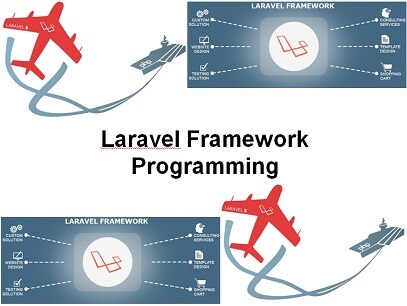-
Learning by doing
-
Trainers with practical experience
-
Classroom training
-
Detailed course material
-
Clear content description
-
Tailormade content possible
-
Training that proceeds
-
Small groups
In the course Laravel Framework Programming participants learn how to build modern PHP applications with the state of the art Laravel Framework.
Laravel has evolved in recent years into one of the most popular PHP frameworks. This is due to the ease of use, the expressive syntax, the dependency injection mechanism and directly deployable components.
In this course you will learn to install Laravel and prepare an environment for application development. Laravel's routing architecture is discussed, the handling of requests and the generation of responses.
Also Laravel's Model View Controller architecture as well as Forms and validation are treated next.
The attention then goes to database access in Laravel and Object Relational Mapping with Laravel's Eloquent ORM.
Finally advanced topics such as authentication and security are discussed. At the end of the course the participants have gone through various case studies with Laravel and they are able to create robust Web sites with Laravel.
PHP developers who want to develop robust and maintainable Web Applications with the Laravel PHP Framework.
Experience with PHP Programming and Web Development with PHP is required to participate in this course.
The theory is treated on the basis of presentation slides. The concepts are illustrated with demos. The theory is interspersed with exercises. The course times are from 9.30 to 16.30.
The participants receive an official certificate Laravel Framework Programming after successful completion of the course.

Module 1 : Laravel Intro |
Module 2 : Routing |
Module 3 : Controllers and Filters |
|
Laravel Installation Creating a Laravel project Laravel Structure Overview Project Structure Facades MVC Pattern Dependency Injection Routing Annotations Lavarel Versions Introducing Composer Using Homestead |
Laravel Request Lifecycle Basic Routing Route Parameters Restricting Parameters Handling HTTP Exceptions Returning Responses Views View Data Redirects Custom Responses Resource Controllers Blade Templates |
Creating Controllers Controller Routing Controller to Command Command to Event Queued Event Handlers Nested Controllers Route Caching RESTful Controllers Basic Filters Multiple Filters Filter Classes Global Filters |
Module 4 : Forms and Validation |
Module 5 : Database Access |
Module 6 : Eloquent ORM |
| Master Template Forms and form tag Text and labels Buttons Closing the Form Security Validation Rules Error Messages Custom Rules Custom Message Generating Framework URLS Generation Shortcuts |
Abstraction Configuration Preparing Creating Tables Column Types Special Column Types Column Modifiers Updating Tables Dropping Tables Basic Concept Creating Migration Rolling Back Migration Tricks |
Creating new model Reading Existing Models Updating Existing Models Deleting Existing Models Queries Preparation Eloquent to string Query Structure Magic Queries Query Scopes Relationships Implementing Relationship Relating and Querying |
Module 7 : Rest API |
Module 8 : Authentication and Security |
|
| Rest Services Resource ID’s Create and Update Read and Delete List Pagination Model Binding Nested Controllers Beyond CRUD Nested Update Nested Create |
Authenticating users User model Authenticating routes Authenticating views Validating user Input Avoiding mass assigment Cross Site Scripting Cross Site Request Forgery SQL Injection Forcing HTTPS |
